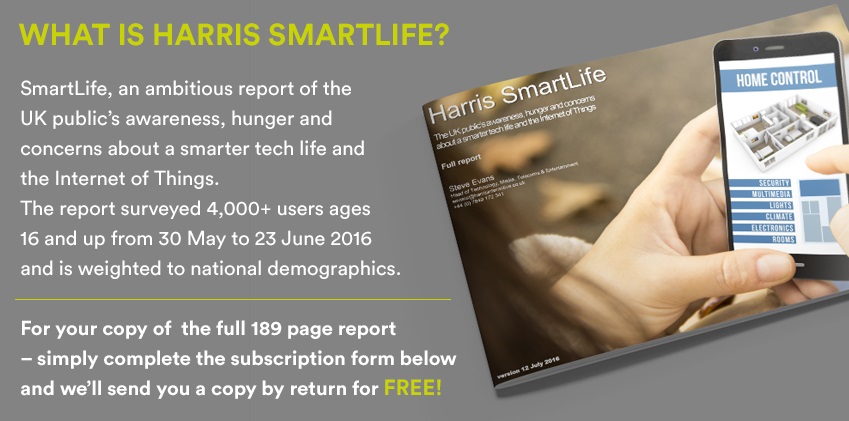While UK consciousness of smart tech is approaching saturation with 99% of consumers now aware of it, only 33% have reached an advanced level of familiarity — indicating that further development is required to boost usage and understanding of its benefits.
The report, form Harris Interactive, surveyed over 4,000 individuals aged 16 plus from across the UK, also revealed a similar scenario regarding the Internet of Things (IoT): although nearly half (48%) of respondents are aware of the IoT, just one in eight (13%) feel very familiar with the innovation.
Interestingly, knowledge of both areas is at its highest amongst younger demographics — as 68% of 16-24 year olds are very familiar with smart tech and 28% of 25-34 year olds are very familiar with the IoT.
This finding suggests a correlation between consumers who have grown up amid rapid technological development — and therefore had greater exposure to it — and their level of comprehension.
This theory is further supported by the results of another branch of the research, in which Harris Interactive asked respondents about their perceptions of 49 smart products from wearable tech to smart washing machines. The data uncovered that the strongest areas of perception are of technologies that have already become normalised, such as online banking (99%) and smart TV (95%), while perceptions are lowest for less commonplace items, such as smart coffee machines (48%) and connected sockets (47%).
Crucially, the reason given for limited usage is that many consumers feel they don’t know enough about certain applications to consider adopting them, including retinas as passwords (33%), connected cars (30%) and smart home hubs (30%). Yet a considerable proportion are excited about new tools, with 42% of those familiar excited by virtual reality headsets, and 36% by drone powered delivery.
When coupled with the leading concerns the research uncovered about the rise of smart tech — namely hacking, privacy and financial security — the data shows that the UK market is not fully on-board with a smart tech life, and is hesitant to embrace an area of progression that is relatively untested. It is therefore imperative for brands to focus their efforts on increasing confidence in smart tech and innovations in IoT by enhancing awareness of its enormous potential and range of useful applications.
Steve Evans, Head of Technology, Media, Telecoms and Entertainment at Harris Interactive, said: “With their reliance on the internet and smartphone always in hand, UK consumers are already leading a ‘smarter’ life. But as the broader spectrum of intelligent technology is still very much in its nascent phase, the market is not yet assured of its full value. This makes it clear that to increase adoption, all brands must work to overcome existing barriers by demonstrating the worth and capabilities of advanced new products, while transparently communicating their ability to provide maximum security and protect individual privacy.
“All brands need to consider how to raise their game to be in tune with a smarter, more connected world. Right now only a minority of customers consider current providers up to scratch, yet with the right approach this balance can be shifted.”
Methodology
Harris SmartLife is based on an online poll conducted by Harris Interactive in June 2016. 4,106 respondents aged 16+ were interviewed using an online panel approach. The survey data is weighted to be representative of UK demographics.
